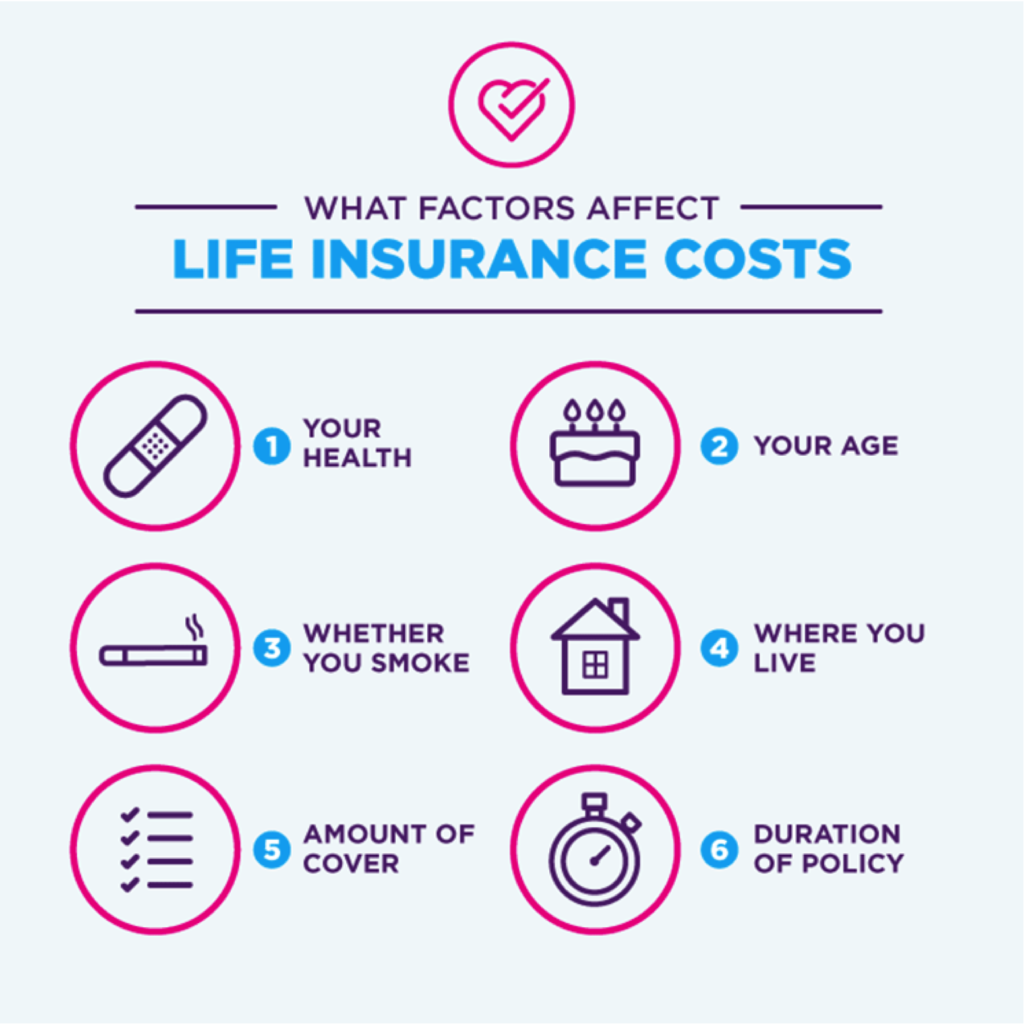What is life insurance?
Life insurance provides financial support to your dependants in the event of your death. The pay-out from the policy can be used to clear debts, such as the mortgage, credit card balance or personal loans, and to cover ongoing household expenses.
Why should I take out life insurance?
Life insurance is a vital part of financial planning for anyone who has dependants.
By ‘dependants’, we mean anyone whose circumstances and material wellbeing would be affected by your death – for example, your partner, your children or anyone else who is financially reliant on you.
Thinking about your death and its inevitable impact on your family’s circumstances is difficult – and many people simply shy away from the topic. But not doing anything could put loved ones at financial risk. That’s why it’s important to confront the issue and take out life insurance.
How does life insurance work?
In most cases, the most effective form of life insurance is called ‘term’ insurance.
This type of policy pays out an agreed amount – the ‘sum insured’ – either as a lump sum or as a regular income, if you die within a specified period – known as the ‘term’.
You choose the size of the pay-out and the length of the term. For example, you may decide to have cover in place until your children are grown up and have left home.
These decisions aren’t always straightforward, which is why we’re here to help. You can compare a range of life insurance policies on our What Protect portal.

What’s the average cost?
Life insurance policies can start from just £5 a month.
However, the cost will vary depending on factors such as your age, health, occupation, whether you smoke, length of the term and whether you choose add-ons such as critical illness cover.
We have found that smokers on average pay £18 more a month for life insurance compared to non-smokers. And adding critical illness cover, which pays out on the diagnosis of one of a list of serious medical conditions, typically increases your payments by almost £28 per month.
An alternative to straightforward term insurance, where the amount of cover stays the same for a set number of years, is what’s known as ‘decreasing’ term insurance, where the amount of cover reduces over the years (usually in line with a mortgage). This means decreasing term insurance costs less, all other things being equal.
Affecting Factors

What is Critical Illness Cover?
Critical illness cover is a form of insurance which pays out a tax-free lump sum in the event that you are diagnosed with a specified illness or medical condition during the term of the policy.
Tax-free pay-out
The policy pays out a tax-free lump sum if you are diagnosed with one of a list of serious conditions within the policy term.
For example, if you take out a 25-year policy with a sum insured of £100,000 and suffer a stroke at any point during that period, you would be able to claim the £100,000.
Financial lifeline
You can spend the money how you wish, so you could use it to clear any debts, pay for medical bills or to adapt your home to your particular needs. In other words, it can offer a financial lifeline in a time of crisis.
You could also invest some or all of the lump sum to generate an income for your family to live on.
Cover for children
Many insurers also offer children’s critical illness cover at no extra charge, though the pay-out is usually limited to between £10,000 and £25,000.
List of conditions
With critical illness cover, you should always read the small print carefully so that you understand exactly what the policy covers.
The list of conditions can be long, with some insurers including more than 60 ailments and injuries. But you might not get a pay-out unless the illness is particularly severe or results in permanent symptoms.
Some forms of cancer, for example, are not included because they are easily treatable. You might also be unable to claim for cancer until it has reached a specified stage.
Similarly, a mild stroke or mild heart attack could be excluded on the basis of severity. So it’s always important to know what ‘exclusions’ are listed in the policy small print.
Single pay-out
Most policies pay out only once. However, a number of insurers will make a small payment if you are diagnosed with a less severe illness. The policy will then continue and you could, in theory, lodge a further claim if you were diagnosed with a critical condition at a later stage.
Premium payments
Critical illness polices stop providing cover if you stop paying the premiums. You should therefore be certain that you can afford the insurance at the outset.
There is no cash-in value to critical illness cover, so you don’t get any money back if you survive to the end of the term or stop the policy part-way through.
Bringing costs down
Premiums for critical illness cover depend largely on the likelihood of a claim. So, the older and unhealthier the applicant, the higher the premium.
You can often bring down the cost of cover by adopting a healthier lifestyle, for example, by losing weight or quitting smoking.
Critical illness cover/life insurance combination
Critical illness cover is also usually cheaper if you buy it alongside life insurance. In fact, some insurers do not even sell standalone critical illness cover.
But remember that there is normally only one pay-out. So, if you claim for a critical illness, you would not receive a further payout on death.
If you require advice on Life or Critical Illness insurance we can refer you to a sutiably qualified comapany
General Insurance
General insurance is basically an insurance policy that protects you against losses and damages other than those covered by life insurance. For more comprehensive coverage, it is vital for you to know about the risks covered to ensure that you and your family are protected from unforeseen losses.
The coverage period for most general insurance policies and plans is usually one year, whereby premiums are normally paid on a one-time basis.
In general, insurance works by spreading the cost of unexpected risks among a large number of people in the same region who share similar risks.
When you take out an insurance policy, you pay a monthly or annual premium. That money joins the premiums of many thousands of other policyholders and goes into a big pool of funds.
With any luck, you will never need to draw on that pool. But if you happen to be one of the unlucky ones affected by an unexpected calamity, perhaps through severe weather or accident, that pool of funds can be used to help you up to the limit you have selected in your policy.
If things go wrong, your insurer may either repair or replace the items that have been lost or damaged, depending on the terms of your policy. You may also have the choice of receiving a cash settlement for the amount of money agreed in your policy.
The risks that are covered are:
- Property loss, for example, stolen car or burnt house
- Liability arising from damage caused by yourself to a third party
- Accidental death or injury
The main products of general insurance include:
- Motor insurance
- Fire/ House owners/ Householders insurance
- Personal accident insurance
- Medical and health insurance
- Travel insurance
- Pet Insurance
Follow our affiliate links to get a quote and buy online
The Small Print. Optimate Consulting Ltd is an administrative hub, processing client applications on behalf of our business partners. As a result of this, we are registered with the Information Commissioner’s Office. We are not regulated by the Financial Conduct Authority (FCA). We do not promote regulated products to the public or provide any form of financial advice on investments or pensions which are regulated by the FCA we will refer you to a suitably qualified person. Should you require Financial Advice, we recommend you contact your Financial Adviser. If you do not have a Financial Adviser we recommend you search the Financial Services Register to find an authorised firm that meets your requirements. If you require assistance on the completion of an application, please feel free to contact us. Optimate Consulting Ltd is a company registered in England and Wales company no.10249349, registered address Unit 8 & 9, Parsons Court, Welbury Way, Newton Aycliffe, County Durham DL5 6


